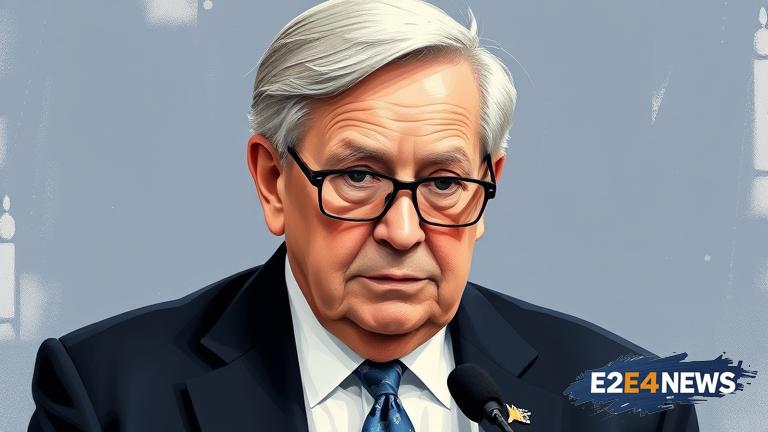The investigation into John Bolton, former National Security Adviser to President Donald Trump, has sent shockwaves through the political landscape. Bolton, a seasoned diplomat and national security expert, has been accused of potentially violating the Espionage Act, a federal law that prohibits the unauthorized disclosure of classified information. The investigation, which is being led by the Department of Justice, is reportedly focused on Bolton’s handling of sensitive information during his tenure as National Security Adviser. Bolton’s book, ‘The Room Where It Happened,’ has been cited as a potential source of the alleged violations, with some claiming that it contains classified information. The book, which was published in 2020, provides a detailed account of Bolton’s time in the Trump administration, including his interactions with the President and other high-ranking officials. The investigation has sparked controversy, with some arguing that it is an attempt to silence Bolton and others claiming that it is a necessary step to protect national security. The Espionage Act, which was enacted in 1917, has been used to prosecute individuals who have leaked classified information, including Chelsea Manning and Edward Snowden. The law is designed to prevent the unauthorized disclosure of sensitive information, which could potentially harm national security. The investigation into Bolton is ongoing, and it is unclear what the outcome will be. However, the controversy surrounding the investigation has highlighted the complex and often contentious relationship between the government and those who seek to disclose sensitive information. The case has also raised questions about the limits of free speech and the role of the media in reporting on sensitive information. Bolton’s supporters argue that he is being unfairly targeted and that the investigation is an attempt to intimidate him and others who may be considering speaking out. Others, however, argue that the investigation is necessary to protect national security and that Bolton’s actions, if proven, would be a serious breach of trust. The investigation has also sparked debate about the use of the Espionage Act, with some arguing that it is too broad and others claiming that it is necessary to prevent the unauthorized disclosure of sensitive information. The case is likely to have significant implications for the future of national security and the role of the media in reporting on sensitive information. As the investigation continues, it is likely that more information will come to light, and the public will be able to better understand the allegations against Bolton. The controversy surrounding the investigation has also highlighted the importance of transparency and accountability in government, and the need for clear guidelines and regulations regarding the handling of sensitive information. The investigation into John Bolton is a complex and multifaceted issue, with implications for national security, free speech, and the role of the media. As the case continues to unfold, it is likely that there will be significant developments and revelations, and the public will be able to better understand the allegations against Bolton and the implications of the investigation. The use of the Espionage Act to investigate Bolton has also raised questions about the limits of executive power and the role of the Department of Justice in enforcing national security laws. The investigation has sparked a heated debate about the balance between national security and individual rights, and the need for clear guidelines and regulations regarding the handling of sensitive information. The case has also highlighted the importance of a free and independent press, and the role of the media in reporting on sensitive information and holding those in power accountable. The investigation into John Bolton is a significant development in the ongoing debate about national security and the role of the media, and it is likely to have significant implications for the future of both. The controversy surrounding the investigation has also sparked a wider debate about the use of secrecy and the handling of sensitive information in government, and the need for greater transparency and accountability. The case has raised important questions about the limits of free speech and the role of the media in reporting on sensitive information, and the need for clear guidelines and regulations regarding the handling of sensitive information. The investigation into John Bolton is a complex and multifaceted issue, with implications for national security, free speech, and the role of the media, and it is likely to continue to be a major topic of debate and discussion in the coming weeks and months.
